Brothers, Part 1
Laci and György
One of the best parts of my trip to LA was talking to my cousin Melinda about our family and hearing Melinda’s memories about my grandfather. These conversations gave me a lot of insight into family dynamics, and also into my grandfather’s relationship with his older brother, Laci (Melinda’s father).
Here is one of Melinda’s stories:
Melinda told me that when Opapa was near the end of his life, in 2005, she went to visit him. There, Opapa told her about one of his most cherished memories. He recalled being a ten year old boy who greatly admired his older brother, Laci (Melinda’s father). Laci was Opapa’s half brother — they had the same mother, but different fathers — and there was a large age gap between them. Laci was fourteen years old when my grandfather was born. So by the time my grandfather was 10 years old, Laci was 24, living in Berlin, and working in the film industry.
At some point in 1929 or 1930, when Opapa was 10 years old, Laci came back to Budapest for a visit. During that visit, he took my grandfather to Gerbeaud’s, one of the most famous coffee houses in Budapest. Here is what it looked like:
For Opapa, this was one of the most glorious and meaningful memories of his childhood. He told Melinda that he drank iced coffee and Laci treated him as an adult, asked him questions and engaged him in conversation.
I love this story, as it allows me to imagine my grandfather as an impressionable child of 10, who longed to be taken seriously by his impressive older brother.
I found more evidence of my grandfather’s childhood admiration for his brother in Laci’s archive. As Melinda and I sorted through the hundreds of letters that Laci kept, I found several written in a child’s script, dated from the late 1920s. Here is one of them:
It is signed “Gyuri,” my grandfather’s nickname. Opapa wrote this letter on October 26, 1926, when he was seven years old (!). Here is the translation:
My dear Laci,
I would like to see you very much. I have already thought of you a lot. But I hope you will come home for Christmas. My Laci, I am already in 2nd grade. And there is no point to ask daddy to write my letter. And, my Laci, daddy has made a projector. And, my Laci, Matyi is already three years old. And he is very much looking forward to seeing you and to Christmas. Sending kisses, Gyuri and Matyi.
Budapest, October 26, 1926, Tuesday
This sweet letter offers a window into my grandfather’s childhood. He is proud that he can write the letter himself — he says there is “no point” in asking “daddy to write my letter” and he informs Laci that he is “already in 2nd grade.” Two times, Opapa mentions that he “hope[s]” that Laci will “come home for Christmas.” The reference to Christmas is, of course, another clue: it confirms that Opapa and his family did, like many assimilated Jewish families, incorporate Christmas celebrations into their family rituals.
We also learn a bit about Opapa’s younger brother, Matyi, who was three years old at the time. Here are two portraits of Opapa and Matyi around this time. The portraits were taken by their mother Margit, who was a photographer:
Finally, I found it adorable that Opapa not only wrote the date and location of his letter, “Budapest, October 26, 1926,” but also the day of the week: “Tuesday.” Very precise!
Alas, most of Opapa’s other letters from the 1920s do not have a date, so I have to go by contextual clues and the state of his handwriting. Here is another letter, which I would date as being from 1927 or 1928, when Opapa was 8 or 9. His handwriting is a bit more comfortable, though less formal, than his 1926 letter:
Here is the translation of this letter:
My dear Laci,
I have got a nice puppet theater from Uncle Sándor, with four puppets, a devil, an old woman and a chimney sweeper and a Vitéz László figure.
Tell Viola not to forget about my birthday present. I have got a nice bracelet watch from Ilonka, it glows in the dark. Nowadays we always go to the beach.
Now we must go to wash ourselves.
Kisses, Gyuri and Matyi
This letter is probably from mid-August, since my grandfather references his “birthday” (August 8). It appears that he is listing all of the gifts he received, including a “nice puppet theater from Uncle Sándor, with four puppets.” One of the puppets was a “Vitéz László figure.” According to my translator, the Vitéz László figure was very famous and popular in Hungary, and retains a significant place within Hungarian folk puppetry. It looks like this:
Aside from the puppet theater and puppets, my grandfather received a glow-in-the dark bracelet from aunt Ilonka. He also (somewhat surprisingly) asks Laci to remind "Viola” (Laci’s wife) “not to forget about my birthday present.” A bit presumptuous, if I am understanding that correctly!
Another letter offers more insight into my grandfather’s desire to spend time with his older brother. This letter does, actually, have a date, but the year is illegible: perhaps 1928? Or maybe 1930? The last two digits are difficult to read. But we do know that it was written on December 12, a couple weeks before Christmas. And it must be after previous letter, since he refers to the puppet theater and says it is falling apart:
Here is the translation:
My dear Laci,
I have received your letter, and I was very happy. I have got straight As in my school records, but I do not have the report for the first semester yet. I like going to school, but I am often late. Now we are repairing the [puppet] theatre because it has fallen apart. But when I saw that Mommy is writing to you, I have also started writing as I do not want you to see that I am not replying. I am sorry that you cannot come home for Christmas but try to come home some other time.
Budapest, December 12, 19?? Gyuri
My grandfather’s admiration for Laci is evident throughout the letter: he was “very happy” when he received Laci’s previous letter. He is also very proud to tell his older brother that he has received “straight As” in school. He also adds, in a confessional tone, that while he likes “going to school,” he is “often late.”
Finally, he hopes to see is older brother soon. He is “sorry” that Laci “cannot come home for Christmas,” and he hopes he will “come home some other time.” This is a theme throughout many of the letters my grandfather wrote to Laci: he wants to see Laci, and is either eagerly anticipating his arrival, or disappointed to know that Laci cannot visit. His desire for his older brother’s attention is palpable.
Together, the letters from the 1920s and my grandfather’s fond memory of drinking iced coffee with Laci in Gerbeaud’s offer a window onto Opapa’s relationship with his older brother. Through the years, their relationship evolved, but I think that my grandfather maintained, to some degree, that 10-year old perspective of his older brother: he admired him, longed to spend more time with him, and found him enchanting and fascinating.
***
Nuts to crack:
I am piecing together Laci’s activities during the late 1920s, when these letters were written. When did he marry his first wife, Viola? And did Viola ever come to Budapest? Which movies was Laci working on during this time?


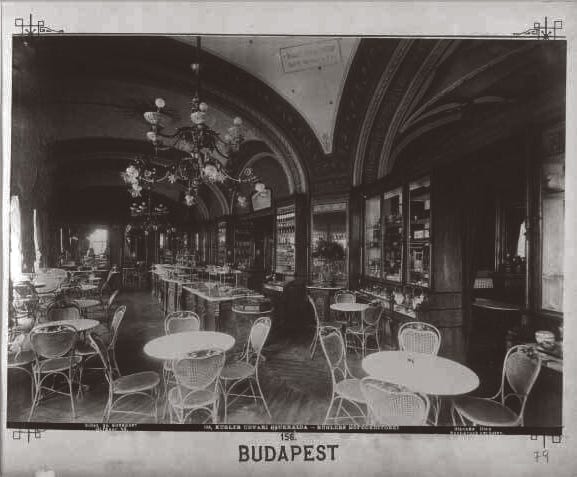
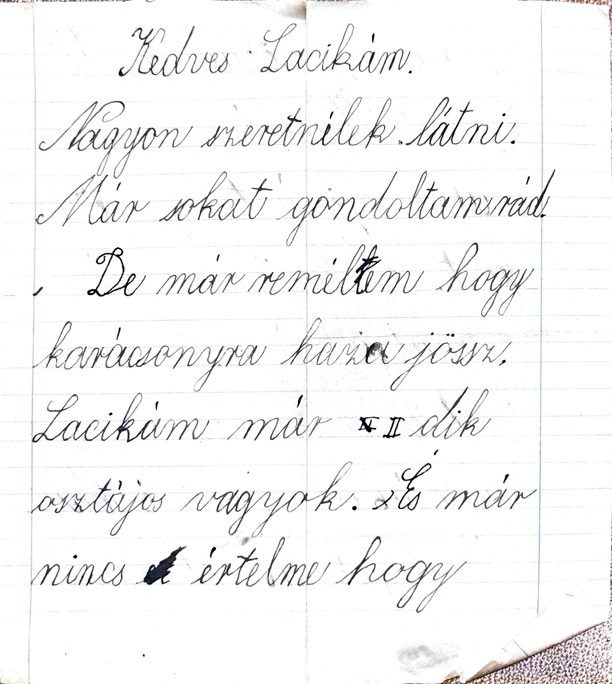
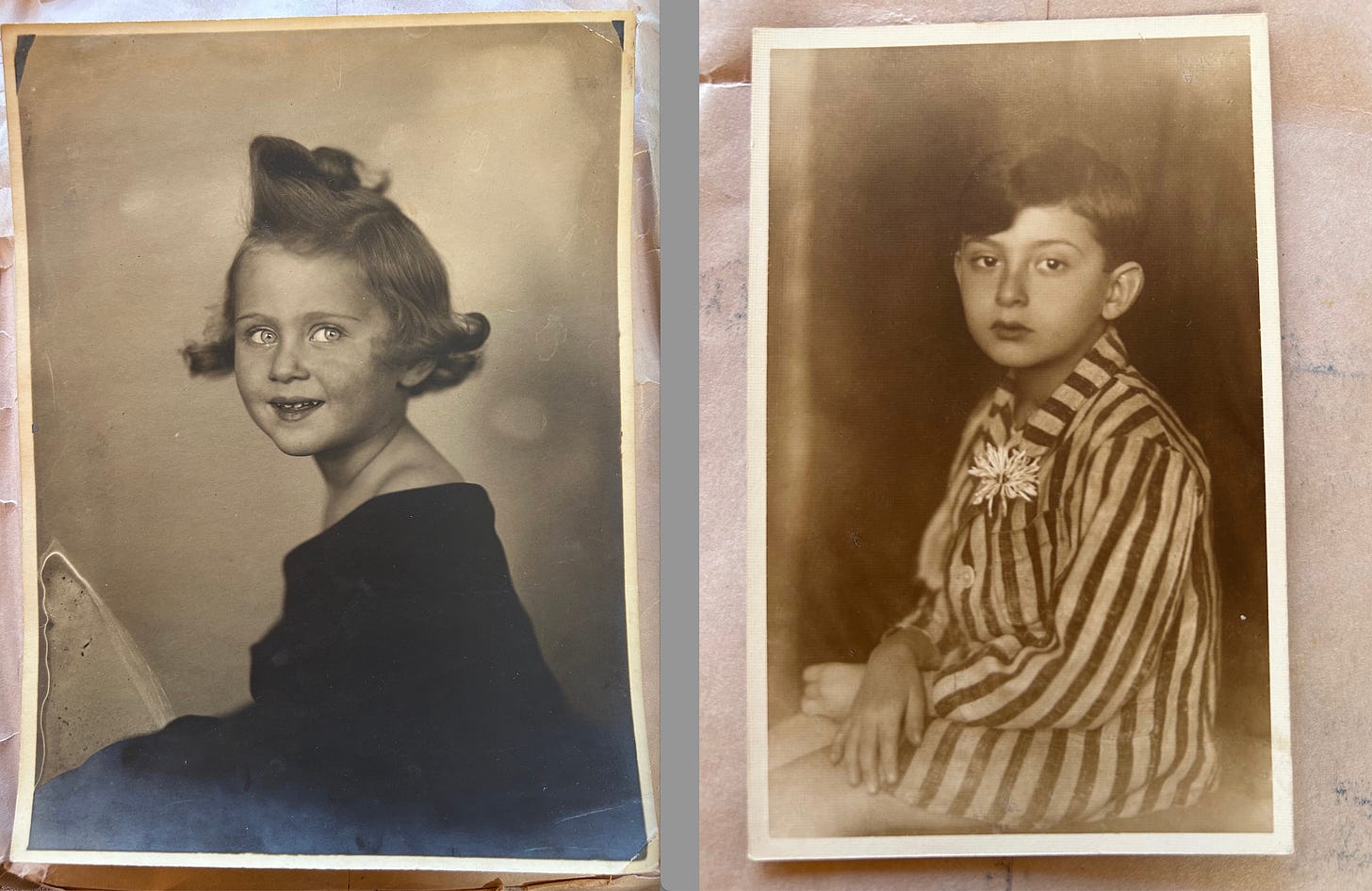
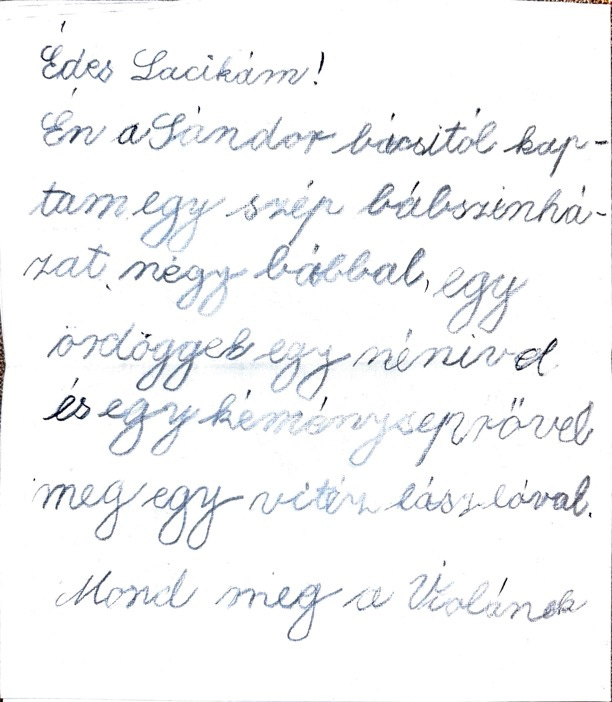
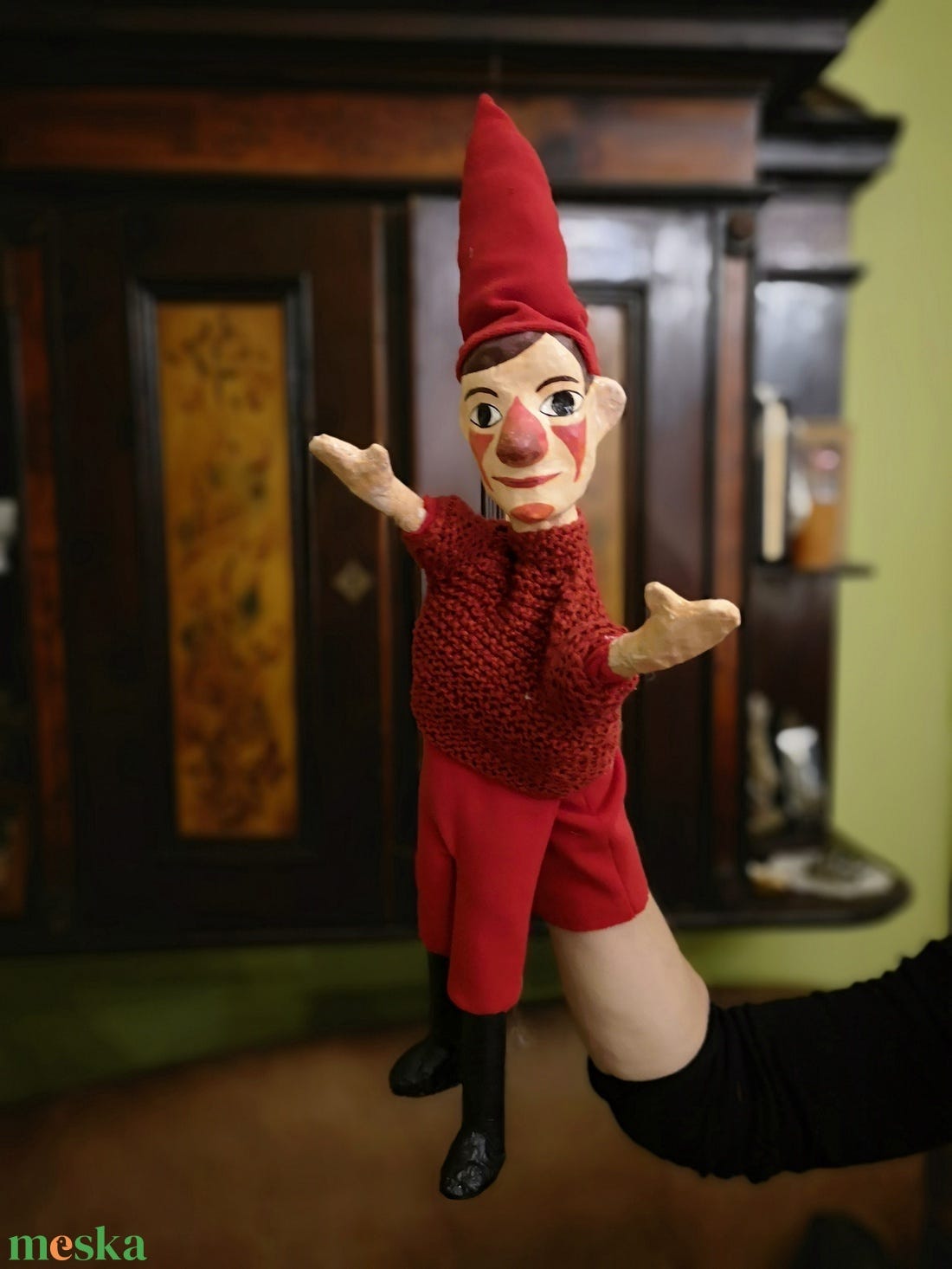
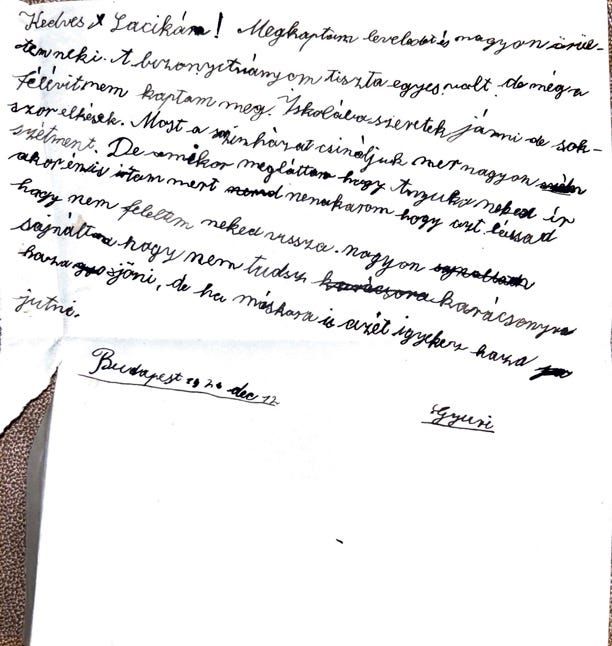
That handwriting at age 7! Incredible!
Love the Gerbeaud’s memory - makes the memory of sitting there with Jon and the girls last year even more meaningful (a man complimented us on how well behaved the girls were, and how refreshing it was not to see kids on tablets. As he walked away, I think Harper threw food at Isabel). And I’m sure we’ll be sitting there ourselves in June, too!
And was Margit an amateur or professional photographer? How much of her photography survives and in what format?